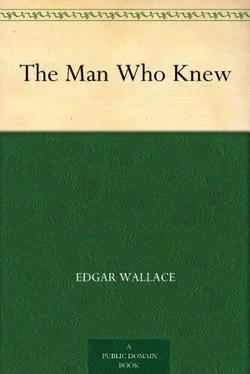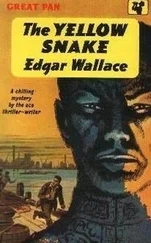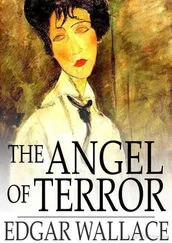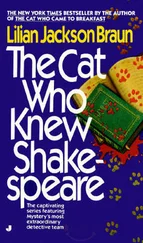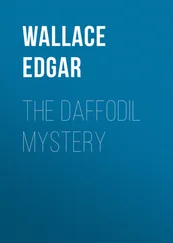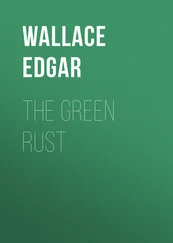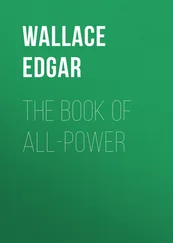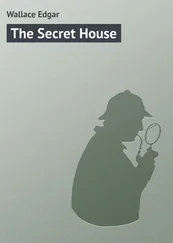Again Mr. Brandon shook his head in doubt.
"I must say, Mr. Merrill," he said, "I don't like these mysterious depositors. What is he like in appearance?"
"Rather a tall, youngish man, exquisitely dressed."
"Clean shaven?"
"No, he has a closely trimmed black beard, though he cannot be much more than twenty-eight. In fact, when I saw him for the first time the face was familiar to me and I had an impression of having seen him before. I think he was wearing a gold-rimmed eyeglass when he came on the first occasion, but I have never met him in the street, and he hardly moves in my humble social circle." Frank smiled.
"I suppose it is all right," said the manager dubiously; "but, anyway, I'll see him to-morrow. As a precautionary measure we might get in touch with your uncle, though I know he'll raise Cain if we bother him about his account."
"He will certainly raise Cain if you get in touch with him to-day," smiled Frank, "for he is due to leave by the two-twenty this afternoon for Paris."
It wanted five minutes to the hour at which the bank closed when a clerk came through the swing door and laid a letter upon the counter which was taken in to Mr. Brandon, who came into the office immediately and crossed to where Frank sat.
"Look at this," he said.
Frank took the letter and read it. It was addressed to the manager, and ran:
Dear Sir: I am leaving for Paris to-night to join my partner, Mr. Minute. I shall be very glad, therefore, if you will arrange to cash the inclosed check.
Yours faithfully,
Rex A. Holland.
The "inclosed check" was for fifty-five thousand pounds and was within five thousand pounds of the amount standing to Mr. Holland's account in the bank. There was a postscript to the letter:
You will accept this, my receipt, for the sum, and hand it to my messenger, Sergeant George Graylin, of the corps of commissionaires, and this form of receipt will serve to indemnify you against loss in the event of mishap.
The manager walked to the counter.
"Who gave you this letter?" he asked.
"Mr. Holland, sir," said the man.
"Where is Mr. Holland?" asked Frank.
The sergeant shook his head.
"At his flat. My instructions were to take this letter to the bank and bring back the money."
The manager was in a quandary. It was a regular transaction, and it was by no means unusual to pay out money in this way. It was only the largeness of the sum which made him hesitate. He disappeared into his office and came back with two bundles of notes which he had taken from the safe. He counted them over, placed them in a sealed envelope, and received from the sergeant his receipt.
When the man had gone Brandon wiped his forehead.
"Phew!" he said. "I don't like this way of doing business very much, and I should be very glad indeed to be transferred back to the head office."
The words were hardly out of his mouth when a bell rang violently. The front doors of the bank had been closed with the departure of the commissioner, and one of the junior clerks, balancing up his day book, dropped his pen, and, at a sign from his chief, walking to the door, pulled back the bolts and admitted—John Minute.
Frank stared at him in astonishment.
"Hello, uncle," he said. "I wish you had come a few minutes before. I thought you were in Paris."
"The wire calling me to Paris was a fake," growled John Minute. "I wired for confirmation, and discovered my Paris people had not sent me any message. I only got the wire just before the train started. I have been spending all the afternoon getting on to the phone to Paris to untangle the muddle. Why did you wish I was here five minutes before?"
"Because," said Frank, "we have just paid out fifty-five thousand pounds to your friend, Mr. Holland."
"My friend?" John Minute stared from the manager to Frank and from Frank to the manager, who suddenly experienced a sinking feeling which accompanies disaster.
"What do you mean by 'my friend'?" asked John Minute. "I have never heard of the man before."
"Didn't you give Mr. Holland checks amounting to fifty-five thousand pounds this morning?" gasped the manager, turning suddenly pale.
"Certainly not!" roared John Minute. "Why the devil should I give him checks? I have never heard of the man."
The manager grasped the counter for support.
He explained the situation in a few halting words, and led the way to his office, Frank accompanying him.
John Minute examined the checks.
"That is my writing," he said. "I could swear to it myself, and yet I never wrote those checks or signed them. Did you note the commissionaire's number?"
"As it happens I jotted it down," said Frank.
By this time the manager was on the phone to the police. At seven o'clock that night the commissionaire was discovered. He had been employed, he said, by a Mr. Holland, whom he described as a slimmish man, clean shaven, and by no means answering to the description which Frank had given.
"I have lived for a long time in Australia," said the commissionaire, "and he spoke like an Australian. In fact, when I mentioned certain places I had been to he told me he knew them."
The police further discovered that the Knightsbridge flat had been taken, furnished, three months before by Mr. Rex Holland, the negotiations having been by letter. Mr. Holland's agent had assumed responsibility for the flat, and Mr. Holland's agent was easily discoverable in a clerk in the employment of a well-known firm of surveyors and auctioneers, who had also received his commission by letter.
When the police searched the flat they found only one thing which helped them in their investigations. The hall porter said that, as often as not, the flat was untenanted, and only occasionally, when he was off duty, had Mr. Holland put in an appearance, and he only knew this from statements which had been made by other tenants.
"It comes to this," said John Minute grimly; "that nobody has seen Mr. Holland but you, Frank."
Frank stiffened.
"I am not suggesting that you are in the swindle," said Minute gruffly. "As likely as not, the man you saw was not Mr. Holland, and it is probably the work of a gang, but I am going to find out who this man is, if I have to spend twice as much as I have lost."
The police were not encouraging.
Detective Inspector Nash, from Scotland Yard, who had handled some of the biggest cases of bank swindles, held out no hope of the money being recovered.
"In theory you can get back the notes if you have their numbers," he said, "but in practice it is almost impossible to recover them, because it is quite easy to change even notes for five hundred pounds, and probably you will find these in circulation in a week or two."
His speculation proved to be correct, for on the third day after the crime three of the missing notes made a curious appearance.
"Ready-Money Minute," true to his nickname, was in the habit of balancing his accounts as between bank and bank by cash payments. He had made it a practice for all his dividends to be paid in actual cash, and these were sent to the Piccadilly branch of the London and Western Counties Bank in bulk. After a payment of a very large sum on account of certain dividends accruing from his South African investments, three of the missing notes were discovered in the bank itself.
John Minute, apprised by telegram of the fact, said nothing; for the money had been paid in by his confidential secretary, Jasper Cole, and there was excellent reason why he did not desire to emphasize the fact.
CHAPTER VIII
SERGEANT SMITH CALLS
The big library of Weald Lodge was brilliantly lighted and nobody had pulled down the blinds. So that it was possible for any man who troubled to jump the low stone wall which ran by the road and push a way through the damp shrubbery to see all that was happening in the room.
Читать дальше
